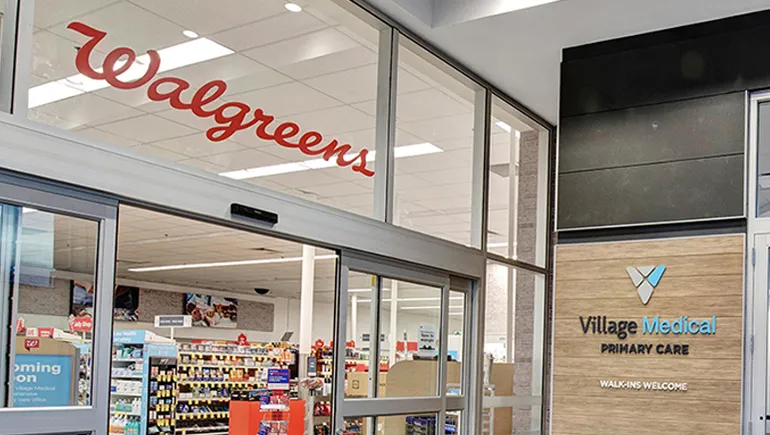Dive Brief:
VillageMD CEO and co-founder Tim Barry has left the value-based primary care chain that’s proved a major drain on majority owner Walgreens’ finances, losing it billions of dollars to date.
Barry has “stepped down as CEO and Board Chair,” a spokesperson for VillageMD confirmed.
VillageMD’s chief operations officer Jim Murray, a long-time insurance executive who joined VillageMD this spring, is replacing Barry on an interim basis, the spokesperson said.
Dive Insight:
VillageMD spokesperson Molly Lynch did not provide details on why Barry is leaving VillageMD. But along with his departure, “VillageMD reaffirms its commitment to providing high-quality, accessible health care services for individuals and communities across the United States,” Lynch said in an emailed statement.
Barry founded VillageMD in 2013 as a network of medical providers that assumes financial risk for the healthcare outcomes of its patients. The Chicago-based group grew quickly, at its height operating hundreds of locations across the U.S. and sparking the interest of Walgreens as the retail giant looked to expand into direct healthcare delivery.
In 2020, Walgreens invested $1 billion in VillageMD before doubling down one year later, funneling an additional $5.2 billion into the value-based provider and bringing its total ownership to 63%.
Under then-CEO Roz Brewer, Walgreens started padding VillageMD’s medical network with targeted physician acquisitions and new clinic builds, including co-locating VillageMD offices at Walgreens locations. In late 2021, Walgreens had plans to open 600 Village Medical at Walgreens primary care practices in more than 30 U.S. markets by 2025, and 1,000 by 2027.
But VillageMD ran up against pernicious challenges to scaling primary care, including low reimbursement and staffing shortages, that contributed to slower patient growth than Walgreens had expected.
Walgreens started closing VillageMD centers this year to try and get the business into the black. That effort has been unsuccessful: To date, VillageMD has yet to turn a profit on a nonadjusted basis — even after Walgreens ramped up closures.
The division’s unprofitability contributed significantly to Walgreens’ $14.1 billion operating loss in its 2024 fiscal year. That loss included a $12.4 billion impairment charge related to VillageMD’s declining value, of which $5.8 billion was attributable to Walgreens itself, according to the results posted in October.
In June, Walgreens said it would reduce its stake in the chain, before two months later disclosing that it’s considering cutting ties with VillageMD entirely.
Walgreens is evaluating “a variety of options” given VillageMD’s “substantial ongoing and expected future cash requirements,” including a sale of all or part off the company, according to an August securities filing.
In a statement, a Walgreens spokesperson expressed support for interim CEO Jim Murray, while suggesting the executive could help VillageMD in its push for profitability.
“We look forward to continuing to partner with Jim Murray as he assumes day-to-day leadership responsibilities,” the spokesperson said. “In addition to his decades of recognized experience in healthcare, since joining VillageMD, Jim has been integral in helping lead the company’s turnaround as VillageMD makes meaningful progress and positions itself for profitable growth.”
Before joining VillageMD in April, Murray held executive roles at managed care company Centene, behavioral health provider Magellan Health and health insurer Humana.
Walgreens’ challenges extend beyond VillageMD. The company, which operates thousands of pharmacies nationwide, is managing amid antiquated pharmacy reimbursement models, competition from vendors like Amazon and lower demand for COVID-19 tests and vaccines coming out of the pandemic. Walgreens has also accrued billions in liabilities from settlements and claims related to its role in the opioid epidemic.
Walgreens is again recentering its strategy around its core pharmacy business under CEO Tim Wentworth, who assumed the top post after Brewer, who spearheaded Walgreens’ health services strategy, departed last year.
As part of Walgreens’ strategic course reversal, the company has offloaded healthcare assets including stakes in home infusion provider Option Care Health and drug distributor Cencora. Walgreens has also laid off employees and shared plans to close a significant number of underperforming retail stores in the U.S.
Walgreens stock has fallen more than 66% year to date.


